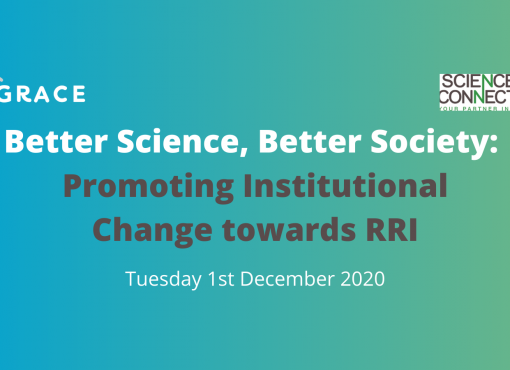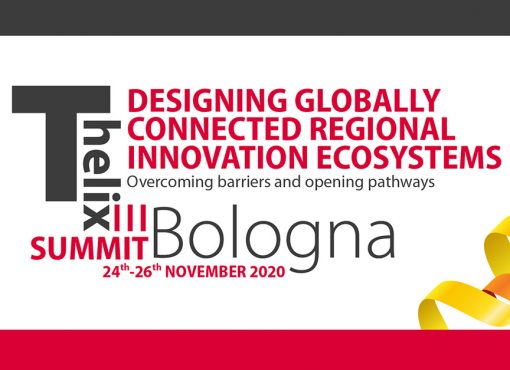
Science Education and Public Engagement
An inspirational webinar was led by ECSITE on Science Education and Public Engagement for GRACE partners.
Why Science Education and Public Engagement?
Science education and public engagement are two of the foundational keys of Responsible Research and Innovation (RRI), and have a crucial role to play in the establishment of bonds between science and society based on trust, two-way dialogue, and long-term thinking.
Following a short introduction to the topic, concrete insights into what science education and public engagement mean in practice were given, with two inspiring pitches from representatives of researchers and science engagement organisations.
Speakers provided approachable, concrete examples, based on GRACE partners’ specificities:
- Sara Calcagnini, Education & CREI, Public engagement, National Museum of Science and Technology Leonardo da Vinci (Milan, Italy)
- Diana Szakál, Research Fellow & FIT4FOOD2030 Budapest coordinator, Environmental Social Science Research Group (Budapest, Hungary). Download her presentation
Breakout rooms then allowed participants to dive further with the speakers into SE and PE issues, discussing what they had heard, how it could be relevant to their work and what they would like to know more about. It was also a good opportunity to cover challenges and potential solutions.
Food for thought
- Today, knowledge is changing. Engagement is about a change in approach, framing the topic in another way for a broader reflection, and a different way of thinking. Moreover, research shows that engagement contributes to better performance in other aspects of research.
- Working with partners like science engagement organisations can help researchers tackling the requirements made by research calls in a more creative way, moving beyond a ticking-the-box exercise.
- No research idea or project is too small to be of interest, with the right perspective and support. Likewise, both STEM subjects and social science and humanities lend themselves to engagement – even though the latter might feel that they have nothing concrete ‘to show’, the topics and questions they raise as they study society itself resonate well with audiences. The necessary mix are research content, engagement-related skills and motivation, and shared aims between the researcher and the science engagement organisation to bring the topic closer to the public and learn from these exchanges.
- How do you fuel researchers’ motivation to engage in SE and PE? Requirements made by funders are a good starting point but are not sufficient. Training should be included alongside the practice of engagement. Science engagement organisation deliver training that helps researchers find their own way (in terms of format, duration, audiences, etc.) to reach a level of comfort with the idea and practices of engagement. Under these conditions, a large number of researchers find it motivating and enjoyable.

